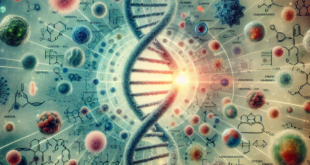Cancer is a complex and multifaceted disease that can affect various parts of the body. While all cancers share certain characteristics, such as uncontrollable cell growth and the potential for metastasis, each type of cancer has its own unique traits that require specific treatment approaches. Understanding these unique traits is essential in order to effectively combat the disease and improve patient outcomes.
One of the key factors that distinguishes different types of cancer is their origin. For example, breast cancer originates in the breast tissue, while lung cancer starts in the lungs. This fundamental difference in origin can affect not only the course of the disease but also the treatment options available. It is important for healthcare professionals to accurately identify the type of cancer in order to provide targeted and personalized treatment, as different types of cancer may respond differently to the same therapies.
Another important factor that varies among different types of cancer is their rate of growth and spread. Some cancers, such as pancreatic cancer, are known for their aggressive growth and propensity for early metastasis, while others, like prostate cancer, may remain localized for years before spreading to other parts of the body. Understanding the rate of growth and spread of a particular type of cancer is crucial in determining the most appropriate treatment plan, as more aggressive cancers may require more intensive therapies.
In addition, each type of cancer may have distinct genetic mutations and molecular characteristics that can influence its response to treatment. For example, some types of breast cancer may be driven by mutations in the HER2 gene, making these cancers more responsive to targeted therapies like Herceptin. On the other hand, some types of lung cancer may be caused by mutations in the EGFR gene, which can be targeted with drugs like gefitinib. By identifying the specific genetic alterations driving a particular type of cancer, healthcare providers can tailor treatment strategies to target these specific abnormalities and improve outcomes for patients.
It is also important to consider the unique symptoms and side effects associated with different types of cancer. For example, lung cancer may present with symptoms like coughing and shortness of breath, while breast cancer may cause changes in the breast tissue or nipple discharge. Understanding the specific symptoms associated with a particular type of cancer can help in early detection and prompt treatment, leading to better outcomes for patients.
In conclusion, it is essential to recognize the unique traits of different types of cancer in order to provide personalized and effective treatment. By understanding the origin, growth rate, genetic mutations, and symptoms of a particular type of cancer, healthcare providers can develop targeted treatment plans that address the specific characteristics of the disease. By taking a tailored approach to cancer care, we can improve outcomes for patients and ultimately work towards better management and prevention of this devastating disease.

 Daily Horoscope Weekly Horoscope Monthly Forecast Love Career Life Astrology
Daily Horoscope Weekly Horoscope Monthly Forecast Love Career Life Astrology




